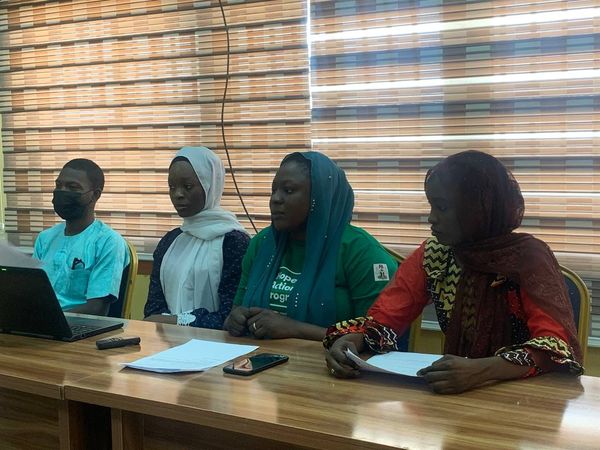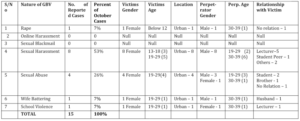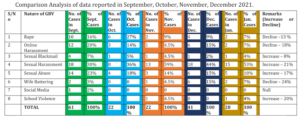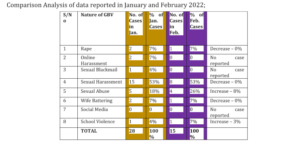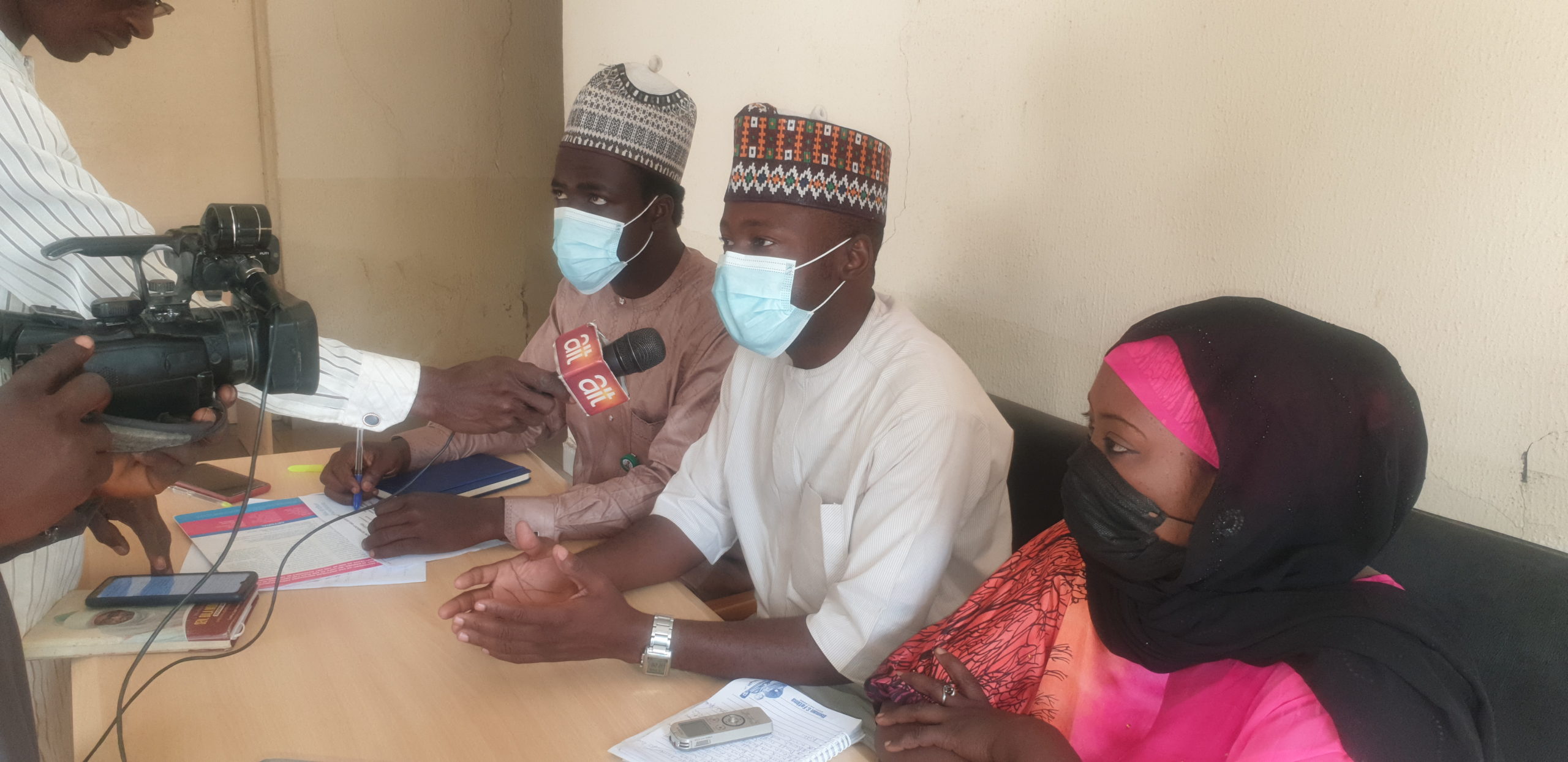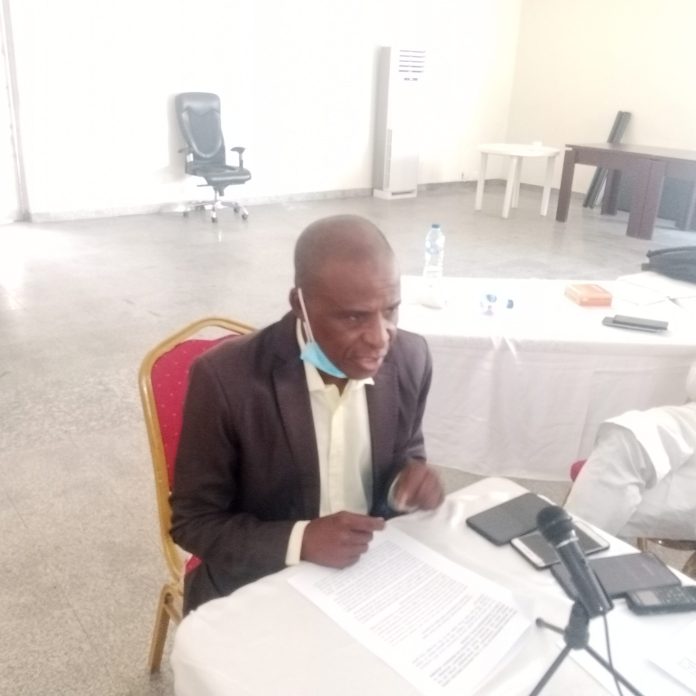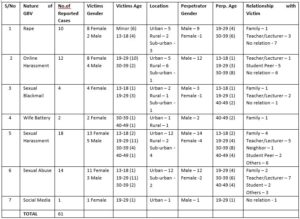
PRESS CONFERENCE ON THE CONTINUED HARASSMENT AND DETENTION OF CITIZENS ONLINE
BY THE GOVERNMENT AUTHORITY ORGANIZED BY THE CENTRE FOR INFORMATION
TECHNOLOGY AND DEVELOPMENT
28th December 2022
Gentlemen of the press, it is my honour and privilege to welcome you on behalf of the Centre for
Information Technology and Development (CITAD) to this press conference which is being
organized to draw the attention of the Nigerian authorities and other stakeholders to bring to
an end the continued harassment and detention of the citizens online in the country. These
harassments and continued detentions of the citizens without following due process is negating
the principles of democracy which is being practiced in Nigeria and absolute abuse of the
human rights of the citizens as enshrined in the 1999 constitution as amended.
Gentlemen of the press you will remember that last month, specifically on the 30 th of
November, 2022 we held a similar press conference to call on the Nigeria Government to
assent to the Digital rights Bill in the Country which will paves ways for digital development and
guaranteed citizens’ rights and protection on the internet. The Digital Rights Bill if being passed
will ensure guarantee application of the human rights which apply offline within the digital
environment and online and it will also ensure due process with the regard to arrest of anybody
deem to have committed any offence.
This particular press conference is necessary due to the increased of arrest of citizens by the
Nigerian security agencies on the order of some state governors. To highlight some of the
examples, on the 11 th of December, 2022, a minor named Umar Garba was arrested in Nguru
Local Government Area, Yobe State over an alleged defamation of character of the Yobe State
Governor, Maimala Buni. The boy was held captive by the Nigeria Police for more than two
weeks without a court order or any arrest warrant. Similarly, the boy was not taken to court up
to the time of his release
It would be recalled that another youth, a 500 level student of the Federal University, Dutse,
Aminu Adamu was also arrested last month over alleged defamation of character of the wife of
the president, Mrs. Aisha Buhari. Similar case had also happened in Kano State were two
Tiktokers were arrested, detained and beaten for alleged defamation of character of the Kano
State Governor, Abdullahi Umar Ganduje. If these arrests are allowed to continue the country is
going to be turned into an authoritarian one where citizens will not have the rights to express
themselves online.
.These arbitrary arrests of the citizens are against the Nigerian constitution and international
covenant of human and people’s rights. Section IV of the Nigerian Constitution has clearly
stated that:
i. Any person who is arrested or detained in accordance with section (1) (C) of this
section shall be brought before a court of law within reasonable time. The
expression of reasonable time under this section means:
a. In case of an arrest or detention in any place where there is court of competent
jurisdiction within a radius of 40 kilometres, a period of one day; and
b. In any other case, a period of two days or such longer period as in the
circumstances may be considered by the court to be reasonable
Digital Rights are the logical and legitimate extension of our fundamental human rights. They
are therefore protected in our constitution and all the international instruments on human to
which Nigeria is a signatory and the country is duty bound to accord the same respect to rights
online as rights offline.
Consequently, , we call on the following stakeholders to adhere to the followings:
- The Nigeria Police should desist from arbitrary arrest of the citizens and ensure they are
following due process in the arrest and detention of the citizens - The Nigeria Police should avoid the unlawful detention of the citizens and ensure every
arrest made is with an order of a competent court - Anybody arrested for any offence shall be taken to court within specified period of time
as in the Nigeria constitution - The president should ensure the speedy assent of the Digital Rights and Freedom Bill as
soon as it is transmitted to him as this will bring an end to the arbitrary arrest of the
citizens by the Nigerian Security Agencies - Civil Society Organizations should join hands to call on the Nigeria security agencies to
stop the arbitrary arrest of the citizens without due process - CSOs should collaboratively work together for an sustained advocacy to ensure the bill is
to be passed and assented by the president
Ali Sabo
Program Officer
Digital Rights



